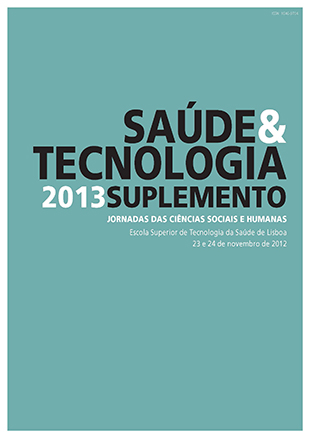The influence of the pedagogical model on psychological variables in 1st year students from ESTSP-IPP
DOI:
https://doi.org/10.25758/set.894Keywords:
Problem based learning, Stress, Coping, Higher education studentsAbstract
Introduction – Adapting to Higher Education is filled with academic experiences that might be stressful for students. The new pedagogical models brought about by the Bologna process put into play new variables that are important to look at, namely in terms of health. This research aims to analyze associations between the pedagogical model (Problem Based Learning vs more traditional approaches) and psychological variables (coping, emotional deregulations, psychosomatic symptoms, perceived stress, and affect). Method – This study has a cross-sectional design. The following online questionnaires were used: Brief-COPE, Difficulties in Emotion Regulation Scale, Perceived Stress Scale, Manifestations of Physical Discomfort Questionnaire, and Positive and Negative Affect Schedule. The sample consisted of 183 first-year students (84% female) from the School of Allied Health Sciences – Polytechnic Institute of Porto. Results – Significant correlations between demographic and psychological variables were found. Considering different pedagogical models, significant differences in psychological variables were found. The main predictors of stress in the sample were: being female, inclusion in the PBL model, higher indexes of emotional deregulation, more psychosomatic symptoms, lower positive affect, and higher negative affect. Conclusion – Differences between pedagogical models are discussed while reflecting on practical implications and suggestions for future research.
Downloads
References
Dores AR, Barreto JF, Bastos A. Promoção da reflexividade através do uso de diários: a perspectiva dos estudantes. In Santos NR, Lima ML, Melo MM, Candeias AA, Grácio ML, Calado AA, editores. Actas do VI Simpósio Nacional de Investigação em Psicologia. Évora: Universidade de Évora; 2006. ISBN 9789729813696
Lopes NM. Tecnologias da saúde e novas dinâmicas de profissionalização. In Carapinheiro G, editor. Sociologia da saúde: estudos e perspectivas. Coimbra: Pé de Página; 2006. ISBN 9789896140526
Costa J, Bechelaine SC, Assis JR. Análise da visão de alunos e professores sobre a aprendizagem baseada em problemas: uma revisão de literatura. R Mineira Educ Fís. 2010;(5):294-303. Portuguese
Alimoglu MK, Gurpinar E, Mamakli S, Aktekin M. Ways of coping as predictors of satisfaction with curriculum and academic success in medical school. Adv Physiol Educ. 2011;35(1):33-8.
Costa ES, Leal IP. Estratégias de coping em estudantes do ensino superior. Anál Psicol. 2004;24(2):189-99. Portuguese
Lucas RE, Diener E, Larsen RJ. Measuring positive emotions. In Lopez SJ, Snyder CR, editors. Positive psychological assessment: a handbook of models and measures. Washington, DC: American Psychological Association; 2003. ISBN 9781557989888
Carver CS. You want to measure coping but your protocol's too long: consider the brief COPE. Int J Behav Med. 1997;4(1):92-100.
Pais-Ribeiro JL, Rodrigues AP. Questões acerca do coping: a propósito do estudo de adaptação do Brief COPE [Some questions about coping: the study of the portuguese adaptation of the Brief CODE]. Psicol Saúde Doenças. 2004;5(1):3-15. Portuguese
Gratz KL, Roemer L. Multidimensional assessment of emotion regulation and dysregulation: development, factor structure, and initial validation of the difficulties in emotion regulation scale. J Psychopathol Behav Assess. 2004;26(1):41-54.
Coutinho J, Ribeiro R, Ferreirinha R, Dias P. The Portuguese version of the Difficulties in Emotion Regulation Scale and its relationship with psychopathological symptoms. Rev Psiq Clín. 2010;37(4):145-51.
Pais-Ribeiro JL. Estudo de adaptação do Questionário de Manifestações Físicas de Mal Estar. Psiq Clín. 2003;24(1):65-76. Portuguese
Cohen S, Kamarck T, Mermelstein R. A global measure of perceived stress. J Health Soc Behav. 1983;24(4):385-96.
Pais-Ribeiro JL, Marques T. A avaliação do stresse: a propósito de um estudo de adaptação da escala de percepção de stresse [Stress assessment: a propos of the adaptation study of the perceived stress scale]. Psicol Saúde Doenças. 2009;10(2):237-48. Portuguese
Galinha IC, Pais-Ribeiro JL. Contribuição para o estudo da versão portuguesa da Positive and Negative Affect Schedule (PANAS): II – Estudo psicométrico. Anál Psicol. 2005;XXIII(2):219-27. Portuguese
Watson D, Clark LA, Tellegen A. Development and validation of brief measures of positive and negative affect: the PANAS scales. J Pers Soc Psychol. 1988;54(6):1063-70.
Fonagy P, Bateman A, Bateman A. The widening scope of mentalizing: a discussion. Psychol Psychother. 2011;84(1):98-110.
Rosenzweig S, Reibel DK, Greeson JM, Brainard GC, Hojat M. Mindfulness-based stress reduction lowers psychological distress in medical students. Teach Learn Med. 2003;15(2):88-92.
Campos BP. Consulta psicológica nas transições desenvolvimentais. Cad Consult Psicol. 1993;(9):5-9. Portuguese
Bastos AM, Silva C, Gonçalves OF. Abordagem multimétodo do desenvolvimento pessoal com estudantes do ensino superior. Psicologia. 2000;14(2):209-23. Portuguese
Basseches M. Dialectical thinking and adult development. Norwood, NJ: Praeger; 1984. ISBN 9780893910174
Downloads
Published
Issue
Section
License
Copyright (c) 2022 Saúde e Tecnologia

This work is licensed under a Creative Commons Attribution-NonCommercial-NoDerivatives 4.0 International License.
The journal Saúde & Tecnologia offers immediate free access to its content, following the principle that making scientific knowledge available to the public free of charge provides greater worldwide democratization of knowledge.
The journal Saúde & Tecnologia does not charge authors any submission or article processing charges (APC).
All content is licensed under a Creative Commons CC-BY-NC-ND license. Authors have the right to: reproduce their work in physical or digital form for personal, professional, or teaching use, but not for commercial use (including the sale of the right to access the article); deposit on their website, that of their institution or in a repository an exact copy in electronic format of the article published by Saúde & Tecnologia, provided that reference is made to its publication in Saúde & Tecnologia and its content (including symbols identifying the journal) is not altered; publish in a book of which they are authors or editors the total or partial content of the manuscript, provided that reference is made to its publication in Saúde & Tecnologia.







